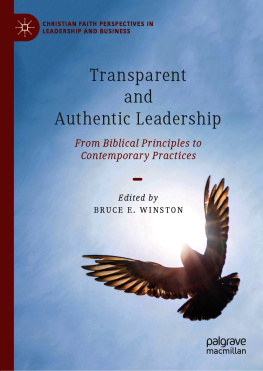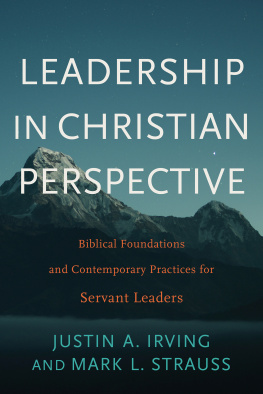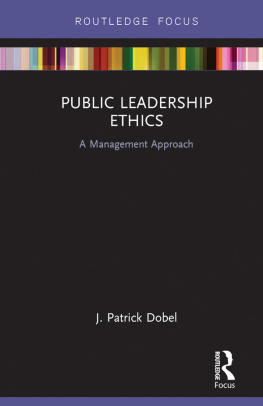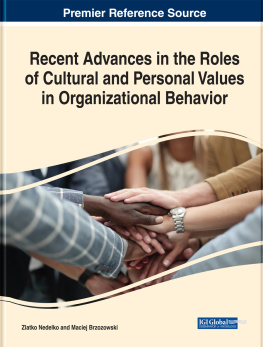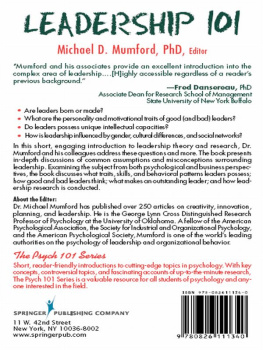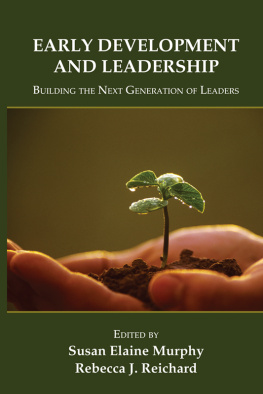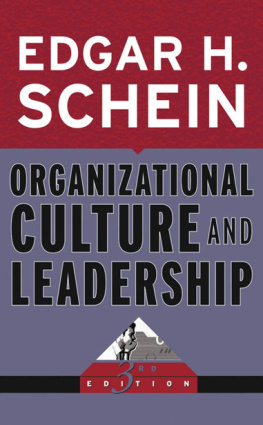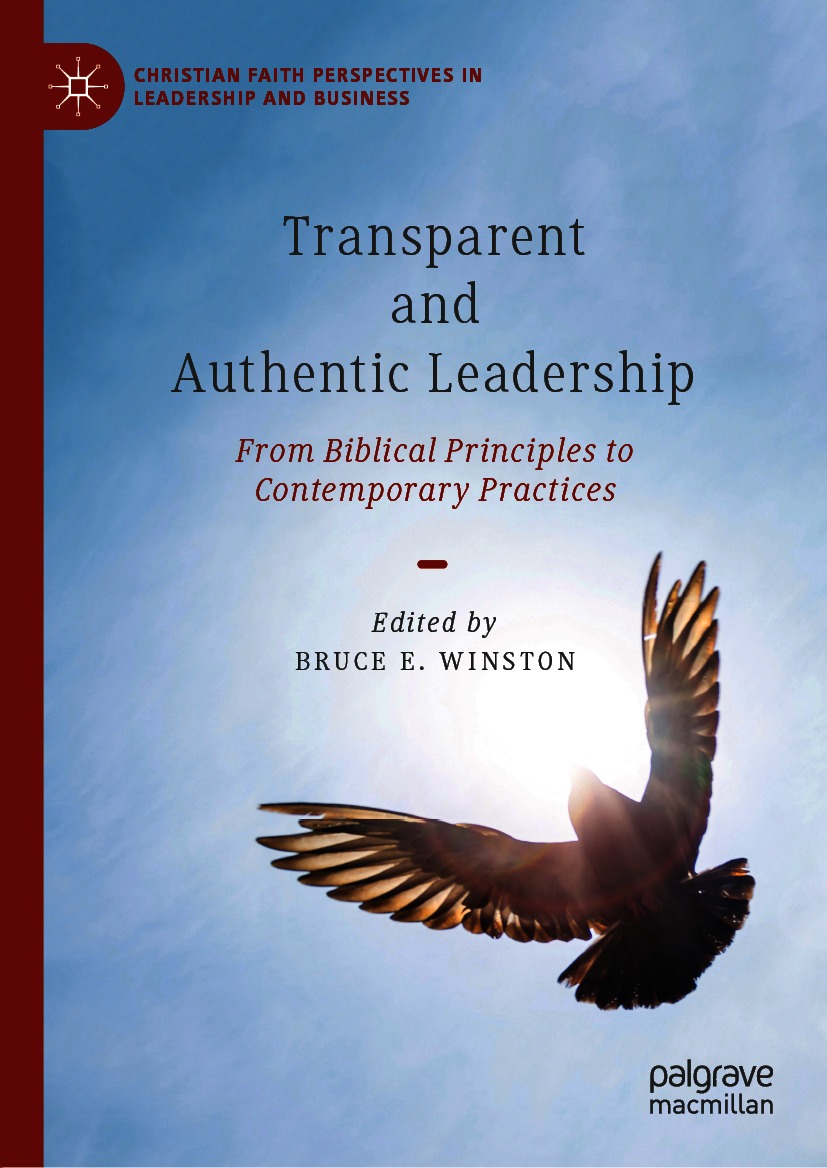Christian Faith Perspectives in Leadership and Business
Series Editors
Doris Gomez
Regent University, Virginia Beach, VA, USA
Kathleen Patterson
School of Global Leadership and Entrepreneurship, Regent University, Virginia Beach, VA, USA
Bruce E. Winston
Regent University, Virginia Beach, VA, USA
Gary Oster
Regent University, Virginia Beach, VA, USA
This book series is designed to integrate Christian faith-based perspectives into the field of leadership and business, widening its influence by taking a deeper look at its foundational roots. It is led by a team of experts from Regent University, recognized by the Coalition of Christian Colleges and Universities as the leader in servant leadership research and the first Christian University to integrate innovation, design thinking, and entrepreneurship courses in its Masters and Doctoral programs. Stemming from Regents hallmark values of innovation and Christian faith-based perspectives, the series aims to put forth top-notch scholarship from current faculty, students, and alumni of Regent's School of Business & Leadership, allowing for both scholarly and practical aspects to be addressed while providing robust content and relevant material to readers. Each volume in the series will contribute to filling the void of a scholarly Christian-faith perspective on key aspects of organizational leadership and business such as Business and Innovation, Biblical Perspectives in Business and Leadership, and Servant Leadership. The series takes a unique approach to such broad-based and well-trodden disciplines as leadership, business, innovation, and entrepreneurship, positioning itself as a much-needed resource for students, academics, and leaders rooted in Christian-faith traditions.
More information about this series at http://www.palgrave.com/gp/series/15425
Transparent and Authentic Leadership
From Biblical Principles to Contemporary Practices
1st ed. 2021

Logo of the publisher
Editor
Bruce E. Winston
Regent University, Chesapeake, VA, USA
Christian Faith Perspectives in Leadership and Business
ISBN 978-3-030-61995-4 e-ISBN 978-3-030-61996-1
https://doi.org/10.1007/978-3-030-61996-1
The Editor(s) (if applicable) and The Author(s), under exclusive license to Springer Nature Switzerland AG 2021
This work is subject to copyright. All rights are solely and exclusively licensed by the Publisher, whether the whole or part of the material is concerned, specifically the rights of translation, reprinting, reuse of illustrations, recitation, broadcasting, reproduction on microfilms or in any other physical way, and transmission or information storage and retrieval, electronic adaptation, computer software, or by similar or dissimilar methodology now known or hereafter developed.
The use of general descriptive names, registered names, trademarks, service marks, etc. in this publication does not imply, even in the absence of a specific statement, that such names are exempt from the relevant protective laws and regulations and therefore free for general use.
The publisher, the authors and the editors are safe to assume that the advice and information in this book are believed to be true and accurate at the date of publication. Neither the publisher nor the authors or the editors give a warranty, expressed or implied, with respect to the material contained herein or for any errors or omissions that may have been made. The publisher remains neutral with regard to jurisdictional claims in published maps and institutional affiliations.
No credit line
This Palgrave Macmillan imprint is published by the registered company Springer Nature Switzerland AG
The registered company address is: Gewerbestrasse 11, 6330 Cham, Switzerland
Preface
From public interest commercials addressing corporate malfeasance to institutes on the future of humanity, a clarion call has been issued for transparent and authentic leaders. This book examines and consolidates the many principles and scriptural foundations on what being a transparent or authentic leader truly means. Pertinent questions are addressed such as: How might ancient biblical leaders have principles of transparent and authentic conduct to share with todays leaders? How might openness, honesty, and other variables relate to building trust with followers? Do certain situations influence different levels of prudence in transparency? Might greater levels of transparency prevent organizational crises and contribute to greater organizational success? What characteristics of professional identity and social identity are associated with authentic leadership and followership? What factors contribute to the development of these characteristics? How is self-awareness and self-actualization beneficial as a leader? How does authentic leadership relate to ethical development and organizational culture? Most importantly, what can we learn from the sacred scriptures about transparency and authenticity in leadership for the twenty-first century? How do advanced technologies, social media, and other modes of rapid communication impact transparency and authenticity in leadership? From the exploration of biblical codes to contemporary best practices, readers will have a well-informed and biblical approach to cultivating transparent and authentic leadership in their organizations.
To address the purpose of this book, the authors divided the chapters into three units: (a) Unit OneGenuine Self-Concepts, (b) Unit TwoHonest Roles and (c) Unit ThreeEthical Leadership.
Unit OneGenuine Self-Concepts
Kristan Price Masons chapter takes readers on a journey to gain a deeper more profound understanding of Self-Awareness and Self-Actualization as elements of Authentic Leadership.
Danica Myers then addresses how Web 2.0 communication technologies impact leaders communication. Danica makes the case that stakeholders request organizational leaders to demonstrate high levels of authenticity and transparency in all aspects of organizational communication.
E. Ashley Newcomb focuses on women leader and how they can draw guidance from Biblical values that focus on doing what is right and good rather than seeking the approval of others.
Tim Gregory examines the leadership practices of King Josiah that enabled him to lead his nation in what could be considered one of the greatest reform movements to ever be successfully undertaken. Eight leadership principles are identified and examined
Julie Headley reviewed the lives of ancient Biblical leaders. Daniel, Joseph, and David as three exemplary leaders in the Old Testament that demonstrated the four components of authentic leadership: self-awareness, relational transparency, balanced processing, and internalized moral perspective. By applying the lives of these men to lessons of modern-day authentic leadership, current leaders can further develop their authentic leadership skills.
Unit TwoHonest Roles
Unit two begins with Patrick Millsaps discussion of Balaam and his donkey, which is a story that reveals both authentic leadership and followership and inauthentic leadership and followership. The chapter includes applications for authentic leadership, authentic followership, and the possibility of authentic organizational context, or culture.

